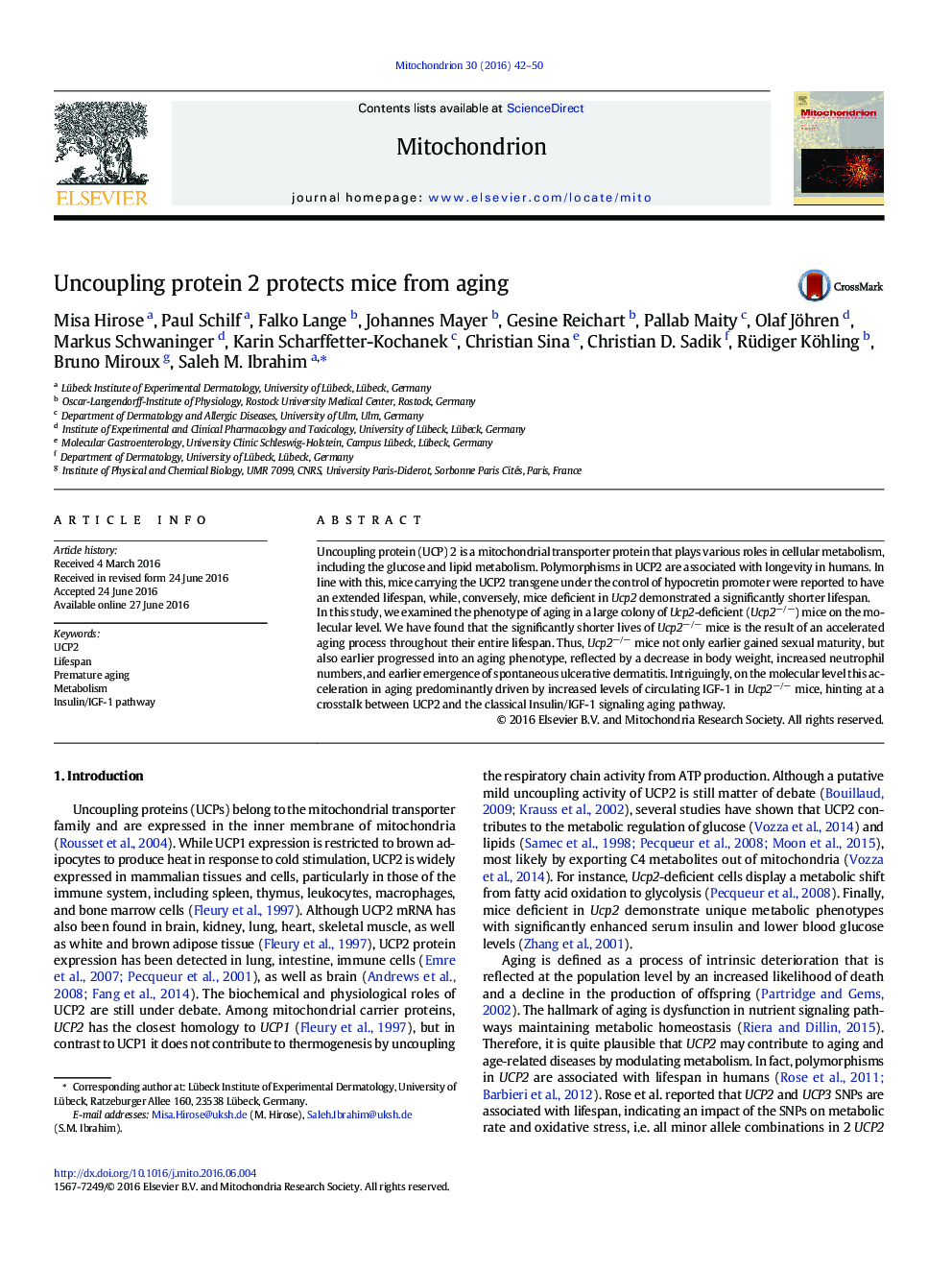| Article ID | Journal | Published Year | Pages | File Type |
|---|---|---|---|---|
| 8398975 | Mitochondrion | 2016 | 9 Pages |
Abstract
In this study, we examined the phenotype of aging in a large colony of Ucp2-deficient (Ucp2â/â) mice on the molecular level. We have found that the significantly shorter lives of Ucp2â/â mice is the result of an accelerated aging process throughout their entire lifespan. Thus, Ucp2â/â mice not only earlier gained sexual maturity, but also earlier progressed into an aging phenotype, reflected by a decrease in body weight, increased neutrophil numbers, and earlier emergence of spontaneous ulcerative dermatitis. Intriguingly, on the molecular level this acceleration in aging predominantly driven by increased levels of circulating IGF-1 in Ucp2â/â mice, hinting at a crosstalk between UCP2 and the classical Insulin/IGF-1 signaling aging pathway.
Related Topics
Life Sciences
Biochemistry, Genetics and Molecular Biology
Biophysics
Authors
Misa Hirose, Paul Schilf, Falko Lange, Johannes Mayer, Gesine Reichart, Pallab Maity, Olaf Jöhren, Markus Schwaninger, Karin Scharffetter-Kochanek, Christian Sina, Christian D. Sadik, Rüdiger Köhling, Bruno Miroux, Saleh M. Ibrahim,
